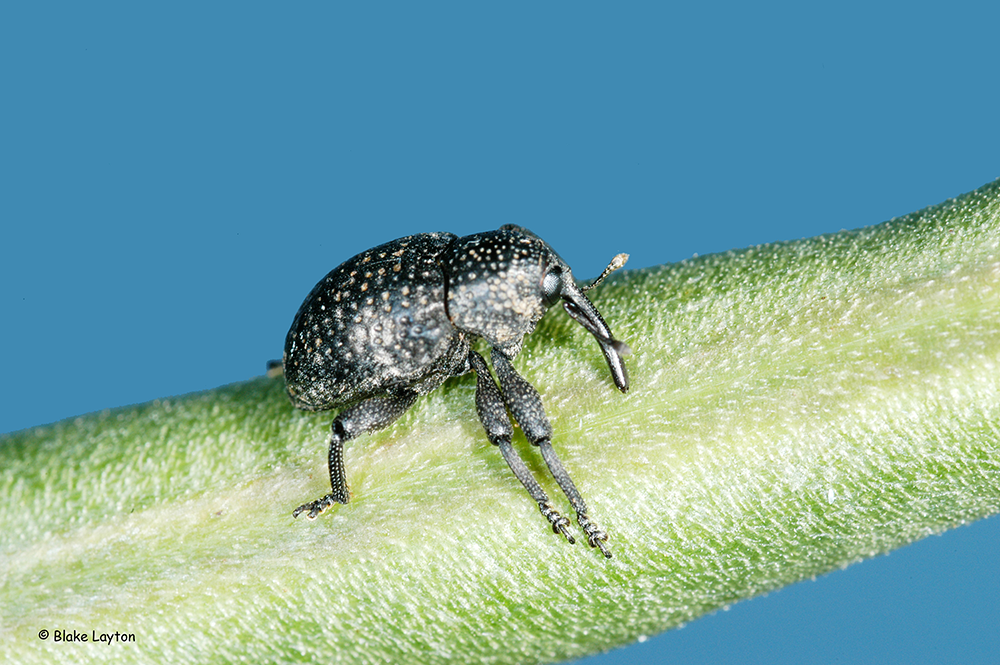Cowpea Curculio, Vol. 4, No. 12

Cowpea Curculio
Chalcodermus aeneus
Order: Coleoptera
Family: Curculionidae
You have picked and shelled a bushel of pinkeye purple hull peas, but a lot of the peas have small circular holes in the seed coat. Your grandmother always stressed the importance of picking these “stung” peas out, because, as she explained, they were infested with little white worms, and you did not want to eat those! This is the work of the cowpea curculio, a small weevil that is one of the most damaging pests of southern peas. These weevils overwinter as adults in leaf litter near the garden and move back into the pea patch the following spring. Adult curculios are rarely seen, but the raised, pimple-like egg-laying punctures they leave on the outside of the pea hull and the small circular spots they leave in the seed are the results of their activity. Look inside some of the more yellow, more mature seed that have such holes and you will find small legless grubs growing inside. If you grow southern peas, this is one pest you definitely want to control. Because the adult weevils are so difficult to spot, control is based on stage of plant development. Don’t wait until you find yourself picking and shelling a lot of damaged peas; it is too late by then.
Control: Proper spray timing is the key to successfully controlling cowpea curculios. As soon as you see the first open blooms or ½ inch long peas apply a series of three sprays, spaced five days apart. The goal is to kill the adult weevils just before the first peas are big enough for them to lay their eggs. Home gardeners can use insecticides that contain zeta-cypermethrin, bifenthrin, malathion or carbaryl and are labeled for use in home gardens. Get these sprays on at the proper time and you won’t have very many “stung” peas to pick out after you finish shelling. To protect pollinators, spray late in the day, after sunset and before it is too dark to see.
See page 6, and pages 12-14 of Extension Publication 2347, Insect Pests of the Home Vegetable Garden, for more information on cowpea curculios.
Blake Layton, Extension Entomology Specialist, Mississippi State University Extension Service.
The information given here is for educational purposes only. Always read and follow current label directions. Specific commercial products are mentioned as examples only and reference to specific products or trade names is made with the understanding that no discrimination is intended to other products that may also be suitable and appropriately labeled.

